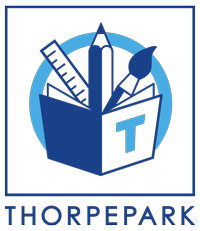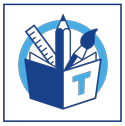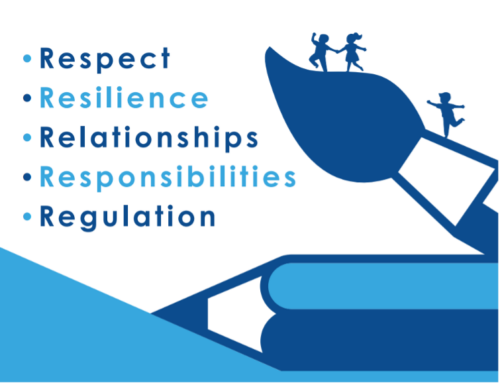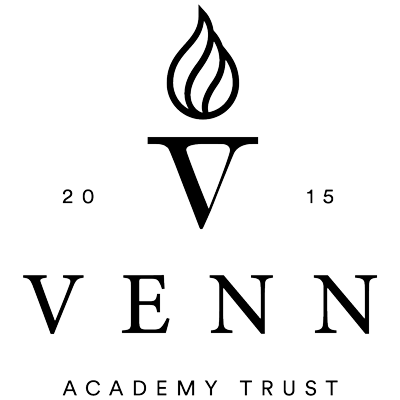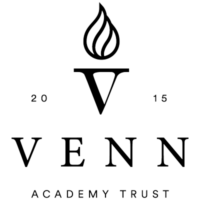Reading at Thorpepark
Throughout the curriculum we aim to ensure that all children become competent, confident and life-long readers. As a school, we recognise that reading underpins all other learning and is a crucial skill required to give our children the best start in life.
Intent
At Thorpepark Academy, we provide an engaging, high-quality reading curriculum that will equip all pupils with the skills they need to be accurate and fluent readers. We ensure that learning to read is prioritised when pupils join the school and that these skills are developed year upon year.
Our reading curriculum aims to lay the foundations for the children’s future and our philosophy is that pupils will learn to read, in order to read to learn. Gaining these fundamental skills will allow our pupils to become enthusiastic, effective and critical readers.
Implementation
Word Reading
Thorpepark’s chosen phonics scheme is Little Wandle Revised Letters and Sounds (see phonics page for more information).
After pupils have completed their phonics learning, they will read Collins Big Cat fluency books to embed skills, fluency and automaticity to become fluent readers. This will begin in Year 2, continue into Year 3 and into Key Stage 2 for the children who may need additional reading support.
Once children have become fluent readers, we introduce them to age appropriate texts for each year group. The purpose of this is for pupils to read widely and be introduced to a world of different authors. Pupils are always encouraged to read year group appropriate texts.
Both reading to an adult and adults reading to children occur often at Thorpepark.
Reading Comprehension
In addition to children’s precise word reading capabilities, we ensure that insightful comprehension is gained through developing the key reading skills that underpin Thorpepark’s reading curriculum. These skills include:
- Predicting
- Clarifying
- Inferring
- Questioning
- Thinking
- Summarising
Our engaging reading curriculum, aims to inspire children to develop a genuine and long-lasting love of reading. The use of quality texts, detailed on each year groups literacy spine, ensures that children are exposed to high quality literature and vocabulary from a young age. Literacy spines also ensure progression throughout the curriculum and exposure to a broad range of genres, authors and text types.
Through guided reading sessions, pupils in KS1 upwards will be given the opportunity to unpick the language, characters and content of different reading material. They can share their ideas and thoughts with one another, as well as ask and answer questions to deepen their understanding.
Reading Challenges
To promote children reading often and widely, once the children have a secure skill set, they are challenged to complete Thorpepark’s reading challenge which consists of a range of different text types, authors and genres.
Reading legends is the Key Stage 2 reading club which takes place during school time, this club aims to encourage children to develop their reading skill set and their love for reading.
Book Spine
We want to promote quality literature in all classrooms. At Thorpepark we have a book spine per year group to ensure children have access to a range of authors, poets and playwriters. This sits alongside Thorpepark’s 101 books.
Thorpepark is also a member of the school library service which gives the school access to an array of resources such as, class texts, resource boxes, topic boxes, story sacks and book club in a bag. This subscription also enables the school to have access to author visits, Big Malarkey Festival and staff training.
Parental engagement
Thorpepark promotes reading at home and encourages children to read as often as possible. Each child has their own reading record where reading is tracked and communicated back to the teacher, children are encouraged to read at home. Parents are encouraged to join their child in ‘stay and play’ sessions focusing on reading, phonics and mark making.
To promote reading at home in EYFS and KS1 we have launched ‘Bedtime Reading’. Every child can loan a book and a cuddly reading buddy to read at bedtime.
Thorpepark’s 101 books
“The more that you read, the more things you will know. The more that you learn, the more places you’ll go.” Dr. Seuss
| EYFS (Nursery & Reception) | Traditional tales |
|---|---|
|
12. The three little pigs |
| KS1 – Spines | KS1 – Reading for pleasure |
|---|---|
|
22. Into the forest (Anthony Brown) KS1 Assemblies
|
30. The dragon post (Emma Yarlett) 31. 10 delicious teachers (Ross Montgomery) 32. Katie in London (James Mayhew) 33. Paddington’s post (Michael Bond) 34. Augustus and his Smile (Catherine Reyner) 35. Handa’s surprise (Eileen Browne) 36. The lighthouse keepers lunch (Ronda and David Armitage) 37. Funny Bone’s (Allan Ahlberg) 38. I want my hat back (Jon Klassen) 39. Lost and found (Oliver Jeffers) 40. Mrs Armitage on wheels (Quentin Blake) 41. Grandad’s secret Giant (David Litchfield) 42. Giraffe’s can’t dance (Giles Andreae) 43. Look up (Nathan Bryon) 44. Meerkat mail (Emily Gravett) 45. She Rex (Michelle Robinson) 46. Tadpoles promise (Jeanne Willis) 47. The day the bananas went bad (Michelle Robinson) 48. When jelly had a wobble (Michelle Robinson) 49. Where the wild things are (Maurice Senda) 50. Michael Rosen’s A-Z poetry collection (Michael Rosen) |
| KS2 – Spines | KS2 – Reading for pleasure |
|---|---|
|
56. Stone age boy (Satoshi Kitamura) Poetry
|
75. Bill’s new frock (Anne Fine) 76. The twits (Roald Dahl) 77. Planet Omar (Zanib Mian) *reflecting realities 78. The train to impossible places (P.G Bell) 79. The wild way home (Sophie Kirtley) 80. Charlie and the great glass elevator (Roald Dahl) 81. Phoenix (SF said) 82. Harry Potter and the philosophers stone (JK Rowling) 83. 1783 Freedom (Catherine Johnson) 84. Orphans of the tide (Struan Murray) 85. Letters from the lighthouse (Emma Carroll) 86. The boy in the striped pyjamas (John Boyne) 87. When the sky falls (Phil Earle) 88. Iron man (Ted Hughes) 89. Cog heart (Peter Bunzl) 90. Lemony Snicket: Series of unfortunate events 91. The boy with the butterfly mind (Victoria Williamson) 92. Carter lake 93. Midnight guardians 94. Suitcase kid (Jaqueline Wilson) 95. Fastest boy in the world (Elizabeth Laird) 96. High rise mysteries (Sharna Jackson) 97. After the war (Tom Palmer) |
Further information:
“Pupils enjoy being active citizens and getting paid in credits they can spend in the school shop.”
“Pupils thrive at Thorpepark Academy.”
“Pupils understand how to keep their minds and bodies healthy.”
“Leaders know the pupils, their families and the community very well.”
“Pupils are exposed to a wide range of high-quality books.”
“Children in the early years get off to a good start.”
“Lots of initiatives are in place to encourage pupils’ love of reading.”
“Pupils are well prepared for secondary education.”
“The school’s offer for pupils’ personal development is exceptional.”
“Pupils know ways to raise their own self-esteem and that of others.”
“Leaders prioritise pupils’ well-being.”
“Parents work in partnership with leaders and staff.”
“The curriculum for pupils with special educational needs and/or disabilities (SEND) is well designed.”
“Extra-curricular clubs are carefully chosen to stretch individual pupils’ talents in music, sport and other areas, including sewing.”
“Pupils love the ‘Thorpepark 50’.”
“Pupils are empathetic and show understanding of other pupils’ needs.”
“Pupils are motivated to learn.”
“Many parents appreciate the adult learning and volunteering opportunities available to them.”
“Leaders are committed to and highly skilled in supporting pupils who struggle to manage their own behaviour.”
“Pupils often benefit from bespoke plans which are matched to their needs.”
“Pupils are motivated to learn. They enjoy lessons and they achieve well.”
“By the end of key stage 2 pupils have secure knowledge in English and mathematics.”
“Pupil mentors support younger pupils and those new to the school.”
“Pupils learn about people and places from their local area in all subjects.”
“Leaders, including the trust, ensure that pupil, parent and staff well-being is a top priority.”
“Pupil ambassadors check on other pupils’ well-being.”
“There is a truly inclusive ethos.”
“Leaders have designed the curriculum to develop pupils’ sense of belonging, identity and pride in being from Hull.”
“Leaders have ensured that the teaching of reading is strong.”
“Pupils learn the importance of contributing to their community.”

